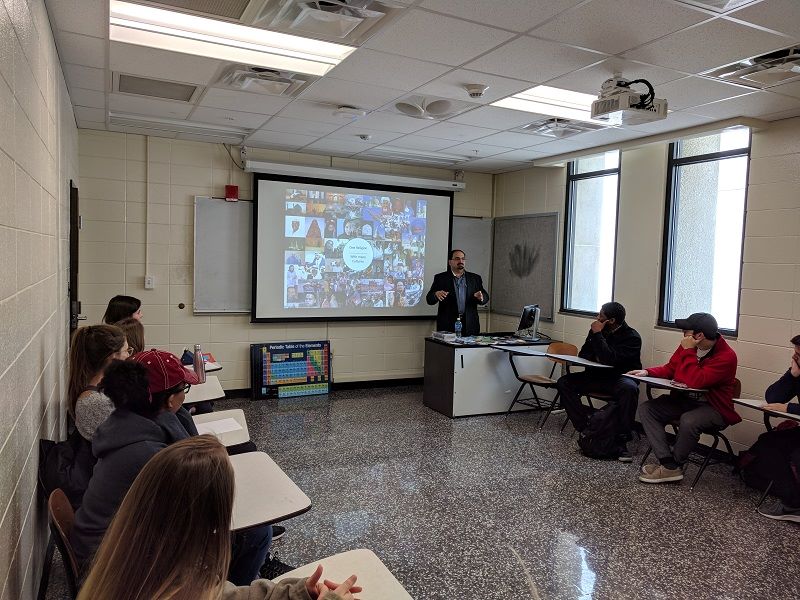Course: Faith, Spirituality and the Workplace
Societies, workplaces in particular, are becoming increasingly multicultural and multi-religious.
To many, their faith is part of their identity and in today's times when the division between one's personal and work self is becoming increasingly blurry, it becomes difficult for people from minority religions to bring their complete self to the workplace. In an attempt to address that and make students sensitive and mindful to people of different faiths and value systems, The Tyson Center offers a course on Faith and Spirituality in workplace.
About the Course
The main objective of the Faith, Spirituality and the Workplace class (MGMT 4103) is to provide students with a foundational knowledge of various faith traditions and forms of spirituality, including non-theist perspectives and to provide an understanding about the interconnections between faith traditions.
Dr. Denise Breaux Soignet teaches the class, which surveys the world's major faith traditions—including Atheism—and offers interactive experiences to help students thrive in a multi-faith workforce. The course explores how people express their spirituality and how this can enrich the workplace. We define spirituality broadly as the diverse activities individuals pursue in their search for meaning and fulfillment, distinguishing it from religious beliefs or purposes.
Below are the pictures of speakers who took some time off from their schedules to speak to our students about different faiths and practices.
John Tyson addressing the class about faith friendly practices in Tyson Foods
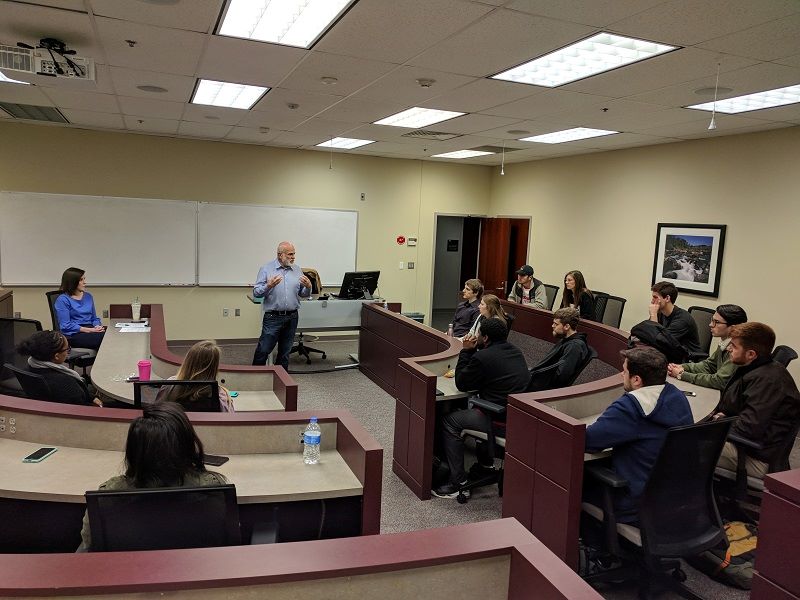
Dr. Vikas Anand discussing Hinduism with the class
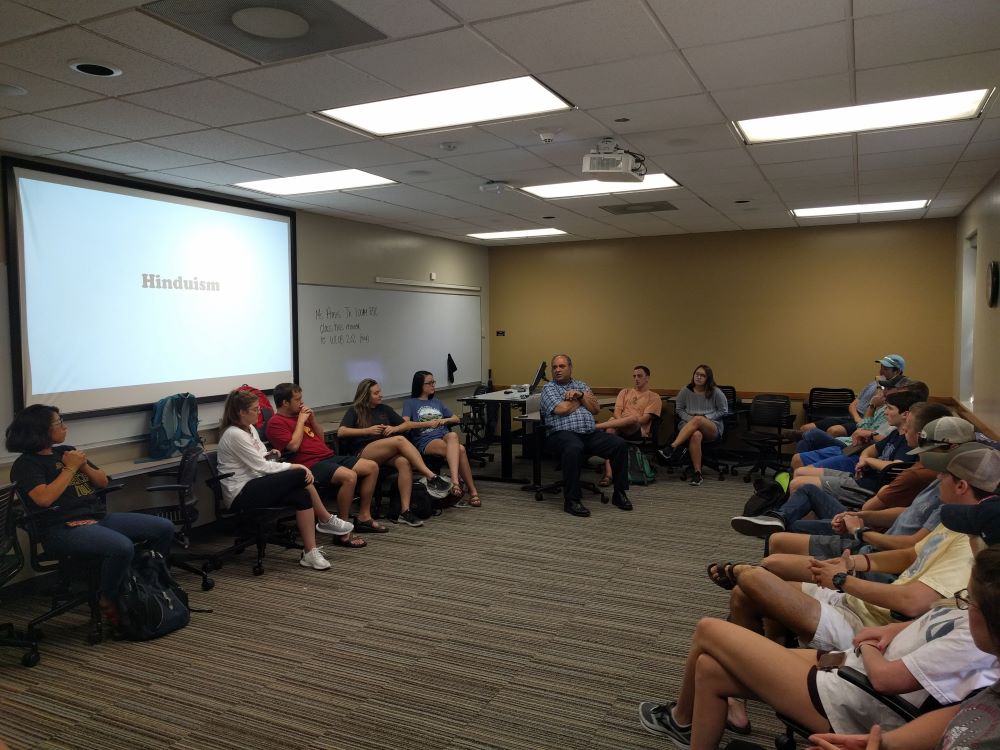
Cantor Sam Radwine discussing Judaism with the class
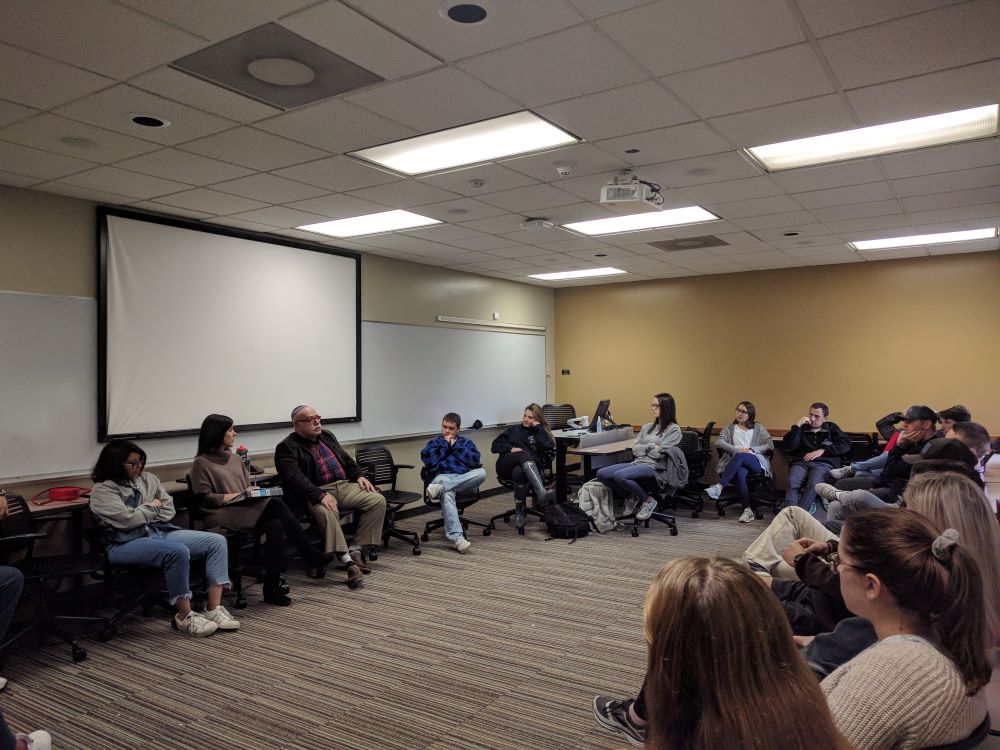
Geshe Thrupton Dorjee speaking about Buddhism
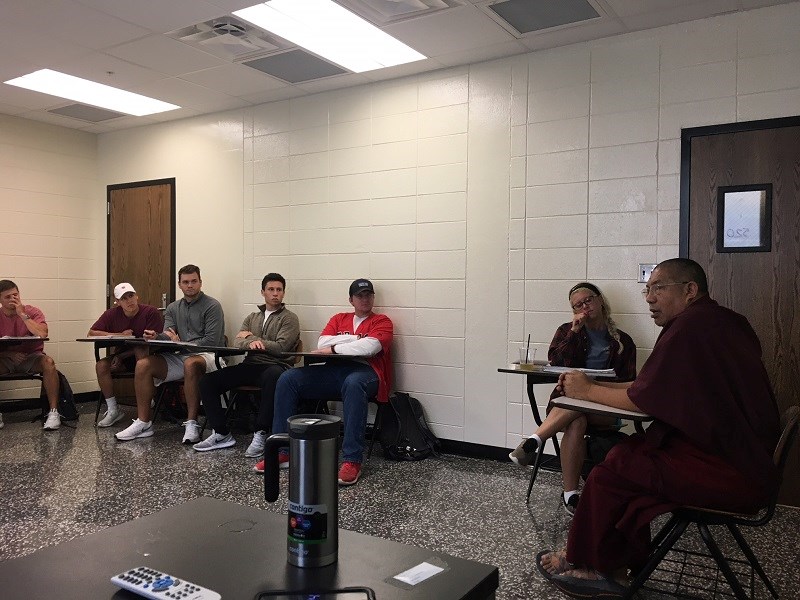
Dr. Judi Neal, founding Director of the Tyson Center, discussing spirituality in the workplace
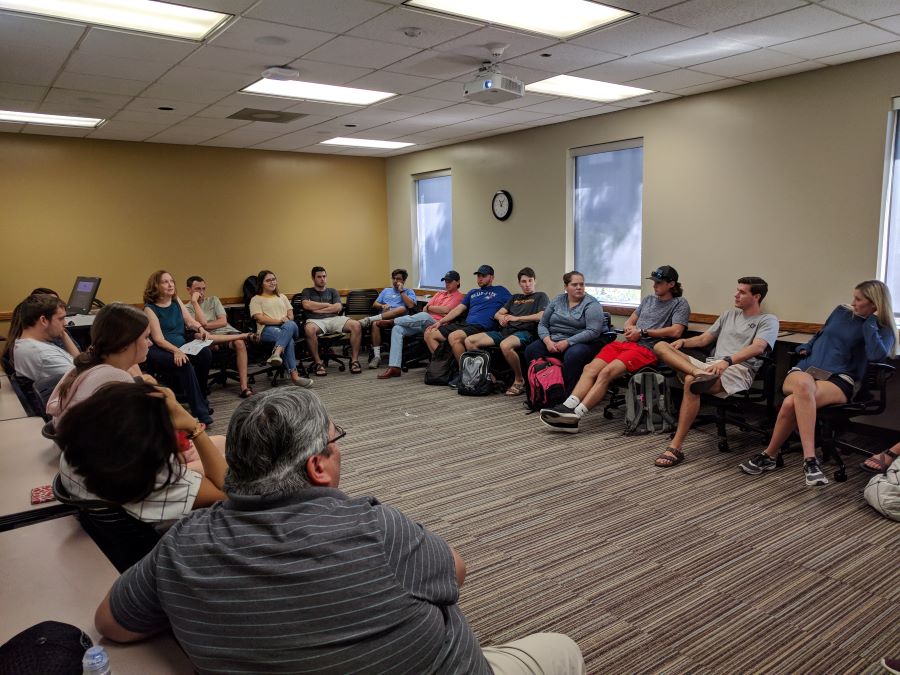
Mary Oleksiuk, Chief HR officer at Tyson Foods, talking about workplace accommodation
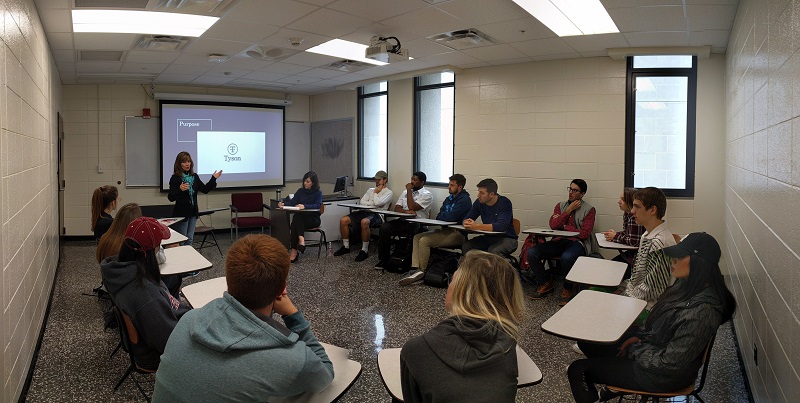
Daniel Harris discussing mindfulness
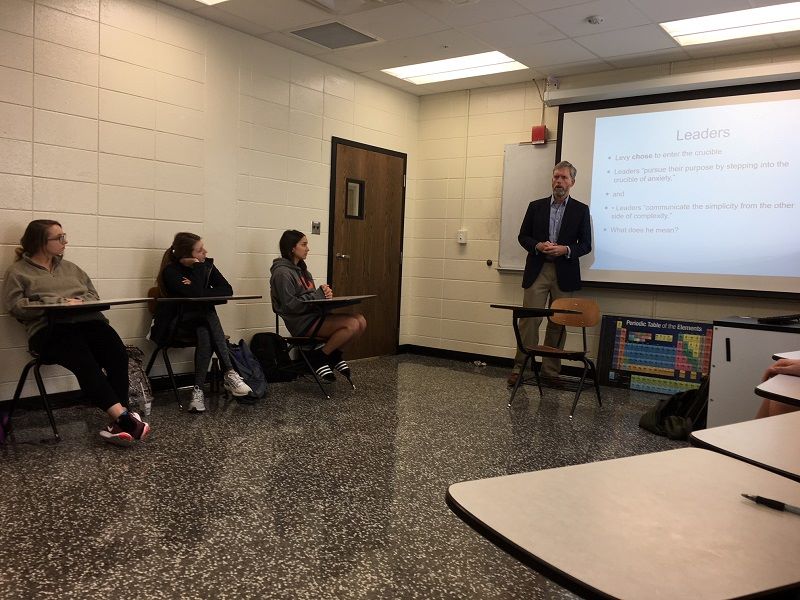
Issa Abboud discussing Islam
